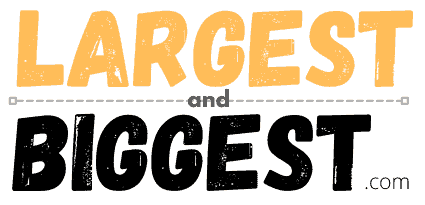Pfizer, the multinational pharmaceutical company founded in 1849, is renowned for its contributions to the healthcare industry and the development of life-saving drugs. However, the question of whether Pfizer is the largest pharmaceutical company in the world is a complex one.
There are many factors to consider when determining the size of a pharmaceutical company, including revenue, number of employees, market capitalization, and the number of products in its portfolio. Based on these factors, Pfizer can be considered one of the largest pharmaceutical companies in the world, but not necessarily the largest.
In terms of revenue, Pfizer generated $53.7 billion in 2020, making it one of the largest pharmaceutical companies in the world. However, companies such as Johnson & Johnson, Roche, and Novartis have larger revenue streams, which puts Pfizer in fourth place among the largest pharmaceutical companies in the world.
Pfizer is also one of the largest employers in the pharmaceutical industry, employing over 95,000 people globally. However, companies such as Roche and Novartis employ more people, which means Pfizer is not necessarily the largest in terms of number of employees.
In terms of market capitalization, Pfizer’s current market cap is approximately $203.9 billion, which is also one of the largest in the pharmaceutical industry. However, companies such as Roche, Johnson & Johnson, and Novartis have larger market capitalizations, which means Pfizer is not necessarily the largest in terms of market capitalization.
Pfizer has a diverse portfolio of innovative products and treatments, including prescription medicines, vaccines, and consumer healthcare products. However, companies such as Johnson & Johnson and Roche also have large portfolios, which means Pfizer is not necessarily the largest in terms of product offerings.
What country develops the most drugs?
The pharmaceutical industry is a highly competitive field, with a number of countries vying for the title of the largest producer of drugs. However, when it comes to the country that develops the most drugs, the United States of America stands out as the clear leader.
With some of the world’s largest pharmaceutical companies based in the country, the US is home to a thriving research and development industry. These companies invest heavily in R&D, and are known for their cutting-edge research and innovative new products. In recent years, the US has been responsible for developing some of the world’s most important drugs, including treatments for cancer, HIV, and a variety of other serious diseases.
One of the reasons that the US is so dominant in the pharmaceutical industry is the strength of its regulatory environment. The US Food and Drug Administration (FDA) is widely regarded as one of the most rigorous and comprehensive regulatory bodies in the world, and is responsible for ensuring that new drugs are both safe and effective before they are approved for use. This rigorous approach to regulation provides pharmaceutical companies with the confidence to invest heavily in R&D, knowing that their products will have a strong chance of making it to market if they pass the FDA’s tests.
Another key factor that contributes to the US’s dominance in the pharmaceutical industry is the high level of expertise and knowledge that is available in the country. The US is home to some of the world’s leading universities and research institutions, and has a large pool of highly skilled professionals working in the pharmaceutical industry. This allows US companies to stay at the forefront of new developments and to bring new drugs to market more quickly than their competitors.
Is Pfizer the largest pharmaceutical company in the world?
Pfizer, the multinational pharmaceutical company founded in 1849, is renowned for its contributions to the healthcare industry and the development of life-saving drugs. However, the question of whether Pfizer is the largest pharmaceutical company in the world is a complex one.
There are many factors to consider when determining the size of a pharmaceutical company, including revenue, number of employees, market capitalization, and the number of products in its portfolio. Based on these factors, Pfizer can be considered one of the largest pharmaceutical companies in the world, but not necessarily the largest.
In terms of revenue, Pfizer generated $53.7 billion in 2020, making it one of the largest pharmaceutical companies in the world. However, companies such as Johnson & Johnson, Roche, and Novartis have larger revenue streams, which puts Pfizer in fourth place among the largest pharmaceutical companies in the world.
Pfizer is also one of the largest employers in the pharmaceutical industry, employing over 95,000 people globally. However, companies such as Roche and Novartis employ more people, which means Pfizer is not necessarily the largest in terms of number of employees.
In terms of market capitalization, Pfizer’s current market cap is approximately $203.9 billion, which is also one of the largest in the pharmaceutical industry. However, companies such as Roche, Johnson & Johnson, and Novartis have larger market capitalizations, which means Pfizer is not necessarily the largest in terms of market capitalization.
Pfizer has a diverse portfolio of innovative products and treatments, including prescription medicines, vaccines, and consumer healthcare products. However, companies such as Johnson & Johnson and Roche also have large portfolios, which means Pfizer is not necessarily the largest in terms of product offerings.
What are the top 10 pharmaceutical companies in the world?
The pharmaceutical industry is one of the most lucrative and rapidly growing industries in the world, and it’s no surprise that some of the largest corporations are in the pharmaceutical sector. The top 10 pharmaceutical companies are responsible for producing and selling the majority of prescription drugs and treatments that are available in the market. These companies are constantly researching, developing, and innovating new drugs to treat a wide range of medical conditions, from common diseases to rare and life-threatening conditions. In this article, we will take a closer look at the top 10 pharmaceutical companies in the world based on their market capitalization and annual revenue.
- Pfizer Inc. – Pfizer Inc. is an American pharmaceutical company that was founded in 1849 and has its headquarters in New York. With a market capitalization of $206.5 billion and annual revenue of $51.75 billion, Pfizer is the largest pharmaceutical company in the world. Pfizer is known for its innovative drugs, including Lipitor, Viagra, and Prevnar.
- Roche Holding AG – Roche Holding AG is a Swiss multinational healthcare company that was founded in 1896. With a market capitalization of $229.26 billion and annual revenue of $51.69 billion, Roche Holding is the second largest pharmaceutical company in the world. Roche is known for its innovative treatments for cancer, diabetes, and neurological conditions.
- Merck & Co., Inc. – Merck & Co., Inc. is an American pharmaceutical company that was founded in 1891. With a market capitalization of $172.23 billion and annual revenue of $48.11 billion, Merck & Co. is the third largest pharmaceutical company in the world. Merck is known for its innovative treatments for cancer, heart disease, and autoimmune disorders.
- Novartis International AG – Novartis International AG is a Swiss multinational pharmaceutical company that was founded in 1996. With a market capitalization of $206.01 billion and annual revenue of $47.43 billion, Novartis is the fourth largest pharmaceutical company in the world. Novartis is known for its innovative treatments for cancer, cardiovascular disease, and eye conditions.
- Sanofi – Sanofi is a French multinational pharmaceutical company that was founded in 2004. With a market capitalization of $102.68 billion and annual revenue of $40.58 billion, Sanofi is the fifth largest pharmaceutical company in the world. Sanofi is known for its innovative treatments for diabetes, cardiovascular disease, and cancer.
- GlaxoSmithKline PLC – GlaxoSmithKline PLC is a British multinational pharmaceutical company that was founded in 2000. With a market capitalization of $87.42 billion and annual revenue of $39.45 billion, GlaxoSmithKline is the sixth largest pharmaceutical company in the world. GlaxoSmithKline is known for its innovative treatments for respiratory diseases, HIV, and cancer.
- Johnson & Johnson – Johnson & Johnson is an American multinational pharmaceutical company that was founded in 1886. With a market capitalization of $398.03 billion and annual revenue of $82.06 billion, Johnson & Johnson is the seventh largest pharmaceutical company in the world. Johnson & Johnson is known for its innovative treatments for cancer, cardiovascular disease, and autoimmune disorders.
- AstraZeneca PLC – AstraZeneca PLC is a British multinational pharmaceutical company that was founded in 1999. With a market capitalization of $93.67 billion and annual revenue of $22.82 billion, AstraZeneca is the eighth largest pharmaceutical company in the world. AstraZeneca is known for its innovative treatments for cancer, respiratory diseases, and cardiovascular disease.
- AbbVie Inc. – AbbVie Inc. is an American multinational pharmaceutical company that was founded in 2013. With a market capitalization of $123.24 billion and annual revenue of $32.75 billion, AbbVie is the ninth largest pharmaceutical company in the world. AbbVie is known for its innovative treatments for autoimmune diseases, cancer, and hepatitis C.
- Bristol-Myers Squibb Company – Bristol-Myers Squibb Company is an American multinational pharmaceutical company that was founded in 1989. With a market capitalization of $87.87 billion and annual revenue of $23.51 billion, Bristol-Myers Squibb is the tenth largest pharmaceutical company in the world. Bristol-Myers Squibb is known for its innovative treatments for cancer, cardiovascular disease, and autoimmune disorders.
These top 10 pharmaceutical companies are the leaders in the industry and are constantly pushing the boundaries of medical research and innovation. Their dedication to improving the health and well-being of people around the world is evident in the quality and effectiveness of the drugs they produce. From cancer treatments to treatments for rare diseases, these companies are making a significant impact on the lives of people all over the world.
What drugs do we get from China?
China is one of the world’s largest manufacturers and exporters of pharmaceutical products. The country has a vast network of pharmaceutical companies, ranging from small, family-owned businesses to large, state-owned corporations. These companies produce a wide range of drugs, including prescription medications, over-the-counter remedies, and traditional Chinese medicines.
One of the most commonly imported drugs from China is paracetamol, also known as acetaminophen. This drug is used to treat mild to moderate pain, as well as reduce fever. It is widely available and sold without a prescription in many countries. In addition to paracetamol, China also produces and exports a variety of other pain relievers, such as ibuprofen, aspirin, and naproxen sodium.
Another popular drug that is imported from China is atorvastatin, a cholesterol-lowering medication. This drug is used to treat high cholesterol and to prevent heart attacks and strokes. Atorvastatin is one of the most widely prescribed drugs in the world, and China is one of the largest producers of the active ingredient used in its manufacture.
China is also a major producer of antibiotics, including penicillin, amoxicillin, and ciprofloxacin. These drugs are used to treat bacterial infections and are essential for combating antibiotic-resistant bacteria. In addition, China is a major supplier of antiviral drugs, such as acyclovir, used to treat infections caused by herpes viruses.
Finally, China is a significant producer of traditional Chinese medicines, such as ginseng, angelica, and liquorice. These medicines have been used for centuries in traditional Chinese medicine to treat a wide range of health conditions, including fatigue, stress, and low immunity. They are popular in many countries, particularly among those seeking alternative treatments.
Which is the No 1 pharmaceutical company in the world?
Johnson & Johnson is a $56.1 billion company that has been involved in the development and manufacture of vaccines to fight COVID -19, which may lead to better treatments for people with chronic illnesses such as diabetes or cancer due their increased importance when fighting off infections from bacteria like MRSA (Methicillin-resistant Staphylococcus Aureus).
Which country has the best pharmaceutical industry?
The pharmaceutical industry is a crucial sector of modern society, providing access to life-saving medications and treatments that help people live longer, healthier lives. With the rapid development of technology and science, the competition among pharmaceutical companies around the world is fierce, each striving to be the best in the field. When it comes to answering the question of which country has the best pharmaceutical industry, there are several factors to consider.
One of the key factors is the availability of highly educated and skilled workers, who are essential to the research and development of new drugs and treatments. In this regard, countries with well-established education systems and thriving research communities, such as the United States, the United Kingdom, and Germany, are considered to have a major advantage. These countries also have a large pool of talented and innovative researchers, who are at the forefront of the latest developments in the field, and have access to cutting-edge technologies and resources.
Another important factor is the level of government support and investment in the pharmaceutical industry. In countries where the government provides significant funding and support to the industry, it has a major impact on the development and success of the industry as a whole. For example, countries such as South Korea and Japan are known for their strong government support for the pharmaceutical industry, and have been able to create a thriving and highly competitive environment that attracts top researchers and companies from around the world.
In addition to these factors, the level of investment in research and development is also an important indicator of the strength of a country’s pharmaceutical industry. Countries that invest heavily in R&D, such as the United States and Switzerland, are likely to have a higher number of new drugs and treatments being developed, and a higher level of innovation in the field. This investment is also likely to lead to more advanced and effective treatments for a range of medical conditions, which is of great benefit to people around the world.
Finally, the quality of regulation and control over the pharmaceutical industry is another key factor that determines the strength of a country’s industry. In countries with well-established regulatory systems, companies are more likely to be held to higher standards, and are less likely to engage in unethical or harmful practices. This helps to ensure that the drugs and treatments that are developed and distributed are of high quality and are safe for patients to use.
- Who Made The Largest Cake In The World
- Whos The Youngest Country Singer
- Who Are The 49Ers Biggest Rivals
- Who Are The Largest Insurance Companies
- Who Are The Saints Biggest Rivals
- Who Are The Seahawks Biggest Rival
- Who Has The Biggest Forearms In The World
- Who Has The Biggest Forehead In The World
- Who Has The Worlds Biggest Eyes
- Who Has The Largest Fleet
- Who Has The Most Expensive Chain In The World
- Who Has Smallest Pitch In Premier League
- Who Has The Biggest Bed In The World
- Who Has The Biggest Fart In The World
- Who Has The Biggest Head In The World
- Who Has The Hardest Boot Camp
- Who Has The Heaviest Hair In The World
- Who Has The Largest Car Collection
- Who Has The Largest Female Feet In The World
- Who Has The Largest Fire Department
- Who Has The Largest Foot In The World
- Who Has The Largest Head In The World
- Who Has The Largest Paying Audience In History
- Who Has The Longest Acrylic Nails In The World
- Who Has The Longest Armpit Hair In The World
- Who Has The Longest Arms Ever
- Who Has The Longest Eyelashes In The World
- Who Has The Longest Fingers In The World
- Who Has The Longest Teeth In The World
- Who Has The Most Dandruff
- Who Has The Smallest Waist In Kpop
- Who Has The Thickest Hair
- Who Has The Thickest Neck
- Who Has Won The Most Worlds Strongest Man Titles
- Who Has The Biggest Feet In The World
- Who Has The Largest Army In Ww2
- Who Has The Largest Hands In The World
- Who Has The Biggest Contract In Baseball
- Who Has The Biggest Shoe Size In Basketball
- Who Has The Largest Cellular Network
- Who Has The Largest Merchant Fleet
- Who Has The Largest Military In The World
- Who Holds The Record For The Fastest Iditarod Race Time
- Who Holds The Record For The Fastest Winning Time In The Iditarod
- Who Holds The Record For The Longest Basketball Shot
- Who Is Cargills Biggest Competitor
- Who Is Disneys Biggest Competitor
- Who Is Marriotts Biggest Competitors
- Who Is The Largest Chicken Producer In The World
- Who Is The Largest Cigarette Manufacturer
- Who Is The Largest Distributor In The World
- Who Is The Largest Employer In Maine
- Who Is The Largest House Builder In The Uk
- Who Is The Largest House Builder In United Kingdom
- Who Is The Largest Network In The World
- Who Is The Largest Producer Of Honey In The World
- Who Is The Largest Producer Of Plexiglass
- Who Is The Largest Promotional Products Distributor
- Who Is The Largest Toy Manufacturer In The World
- Who Is The Second Largest Producer Of Ginger
- Who Is The Worlds Largest Insurance Broker
- Who Is Walmarts Biggest Competitor
- Who Is The Largest University In The World
- Who Is Anheuser Busch Biggest Competitor
- Who Is Frito Lays Biggest Competitor
- Who Is Juventus Biggest Rival
- Who Is Kellogg Biggest Competitor
- Who Is Largest Employer In Uk
- Who Is The Biggest Head In The World
- Who Is The Boy With The Longest Hair In The World
- Who Is The Fastest Eater
- Who Is The Fastest Growing Instagram Accounts
- Who Is The Fastest Growing Tiktok
- Who Is The Heaviest 12 Year Old
- Who Is The Heaviest Nascar Driver
- Who Is The Heaviest Player In The Nhl
- Who Is The Heaviest Soccer Player
- Who Is The Largest Employer In The Uk
- Who Is The Largest Football Player
- Who Is The Largest Isp In The World
- Who Is The Largest Landowner In The World
- Who Is The Largest Plexiglass Manufacturer
- Who Is The Largest Private Landowner In Montana
- Who Is The Largest Toy Distributor In The World
- Who Is The Lightest Man In The World
- Who Is The Lightest Person Ever
- Who Is The Lightest Person On Earth
- Who Is The Longest Neck In The World
- Who Is The Most Famous Athlete Of All Time
- Who Is The Most Famous Person In South Carolina
- Who Is The Most Youngest Famous Person
- Who Is The Number 1 Competitive Eater In The World
- Who Is The Oldest Artist Number One Song On The Billboard Charts
- Who Is The Oldest Baseball Player Still Alive
- Who Is The Oldest Living New York Yankee
- Who Is The Oldest Person To Graduate High School
- Who Is The Shortest Quarterback To Win A Superbowl
- Who Is The Skinniest In Blackpink
- Who Is The Skinniest Person Alive
- Who Is The Skinniest Person In Blackpink
- Who Is The Skinniest Person In The World
- Who Is The Skinniest President
- Who Is The Smallest Rapper
- Who Is The Strongest Big Cat
- Who Is The Strongest Girl In The World
- Who Is The Vikings Biggest Rival
- Who Is The Wealthiest Nascar Owner
- Who Is The Widest Man In The World
- Who Is The Worlds Fastest Eater
- Who Is The Worlds Largest Female Athlete
- Who Is The Youngest Musician In The Whole World
- Who Is The Youngest Player To Hit 100 Home Runs
- Who Is The Youngest Worlds Strongest Man Winner
- Who Is Youngest By The Age From The Beatles
- Who Is The Biggest Diamond Dealer In The World
- Who Is The Smartest Greek God
- Who Is The Biggest Man In The World
- Who Is The Largest Drug Maker In The World
- Who Is The Fastest 13 Year Old
- Who Is The Heaviest College Football Player
- Who Is The Largest Female Athlete
- Who Is The Most Famous Horseback Rider
- Who Is The Shortest Person To Dunk
- Who Is The Skinniest Soccer Player
- Who Is The Father Of Electronics
- Who Is The Largest Mobile Network
- Who Owns The Biggest Farm In The World
- Who Owns The Largest Ranch In Montana
- Who Owns The Largest Ranch In Wyoming
- Who Owns The Worlds Largest Collection Of Basketball Shoes
- Who Was The Greatest Moonshiner
- Who Was The Biggest Selling Artist Of The 70S
- Who Was The Greatest Builder In Egypts History
- Who Was The Hottest Beatle
- Who Was The Most Famous Beatle
- Who Was The Biggest Selling Artist Of The 70S
- Who Was The Greatest Builder In Egypts History
- Who Was The Hottest Beatle
- Who Was The Most Famous Beatle
- Who Was The Largest Oil Tycoon
- Why Do Noble Gases Have Smallest Atomic Radius
- Will Head Lice Become Extinct







